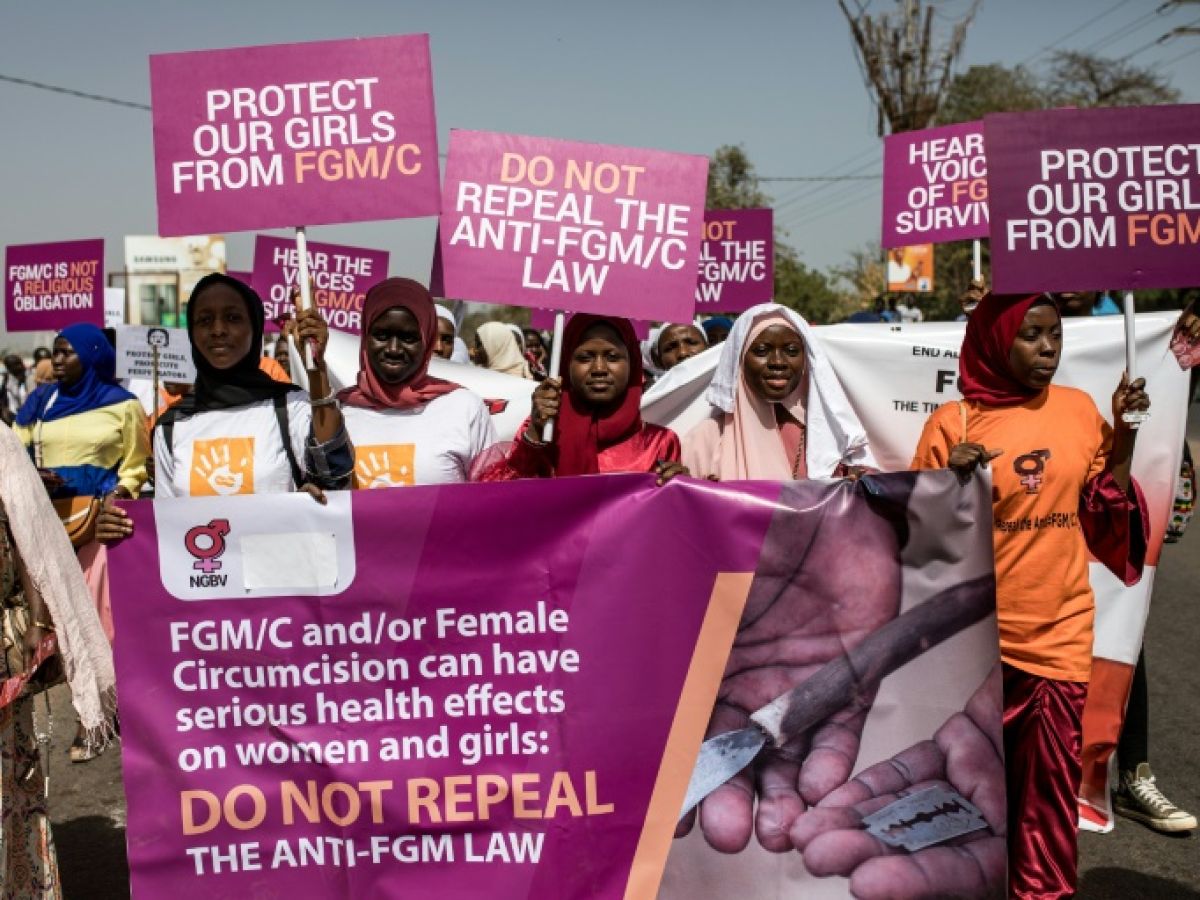Female excision and mutilation remain prohibited in The Gambia despite pressure from proclaimed supporters of the tradition: Parliament on Monday rejected a bill which would have lifted the ban in force since 2015 on these practices, after months of controversy.
The deputies rejected all the amendments proposed to the 2015 text, which would have decriminalized the practice.
Human rights groups and the United Nations had urged lawmakers to reject the proposed law, saying it threatened years of progress and would have made Gambia the first country to overturn a ban on female genital mutilation ( FGM).
“I declare that the bill is rejected and that the legislative process is exhausted,” said the president of the National Assembly, Fabakary Tombong Jatta.
The bill which has been before Parliament since March deeply divides opinion in this predominantly Muslim country.
The text presented by MP Almameh Gibba affirmed that excision is a deeply rooted cultural and religious practice. But anti-FGM campaigners and the United Nations say it is a human rights violation.

FGM includes the partial or total removal of the clitoris (excision), or more broadly of the external genitalia, or any other injury to the genitals.
Apart from pain and trauma, they can have serious consequences: infections, bleeding, and later infertility and childbirth complications.
The Gambia is one of the 10 countries with the highest rate of FGM: 73% women and girls aged 15 to 49 have undergone this practice, according to figures from the United Nations Children's Fund (UNICEF) for 2024 .
– “Serve as an example” –
“This vote is an important victory for women and girls in Gambia,” Divya Srinivasan of the women's rights NGO Equality Now told AFP. “We hope that this decision will serve as an example in the nearby region as well as on the entire continent,” she added.
Amnesty International also applauded.

The adoption of the 2015 law “was an important step in the country's efforts to protect the rights of girls and women,” said Samira Daoud, regional director of Amnesty International. “It was essential to protect this progress,” she said.
Amnesty, however, is urging the government to do more to enforce the law and address "the root causes of the problem to change attitudes and norms to empower women and girls."
A United Nations report from March indicates that more than 230 million girls and women worldwide have survived the practice.
– “Female circumcision” –
A parliamentary committee had paved the way for Monday's vote.
Its report said repealing the ban would “expose women and girls to serious health risks and violate their rights to physical and mental well-being.”

The commission said it had interviewed Muslim scholars who confirmed that these practices were not desired by Islam, contrary to what supporters of the repeal claimed. MEPs approved the report last week.
Former Gambian dictator Yahya Jammeh (1994-2017), now in exile, banned female genital mutilation in 2015, believing that it was outdated and did not constitute a requirement of Islam. The same year, Parliament passed the first law specifically prohibiting the practice, now punishable by up to three years' imprisonment.
In reality, FGM has not been eradicated in The Gambia.
The recent feud erupted in 2023, when three women were fined or jailed for carrying out female genital mutilation.
An Islamic cleric paid the fines and the Gambia's Supreme Islamic Council, the main Muslim organization, issued a fatwa confirming the legality of "female circumcision." The Council said that “female circumcision” was not only an ancestral custom, but also “one of the virtues of Islam”.


